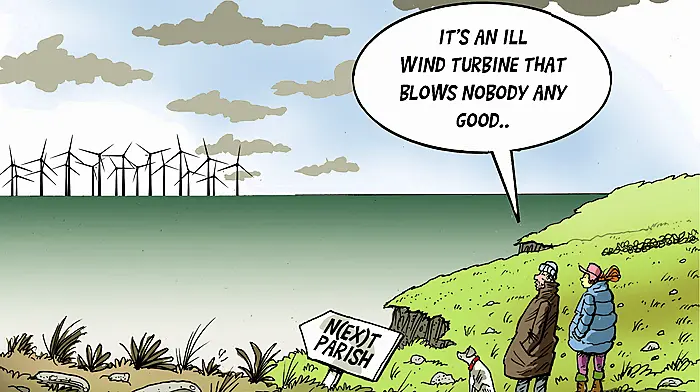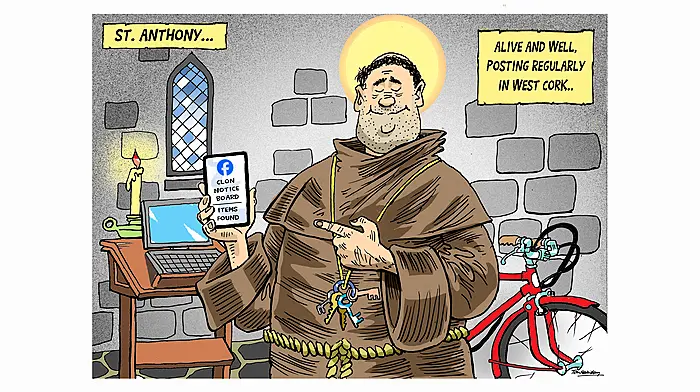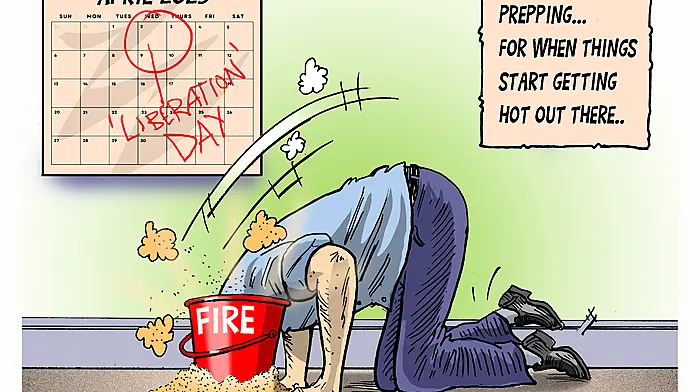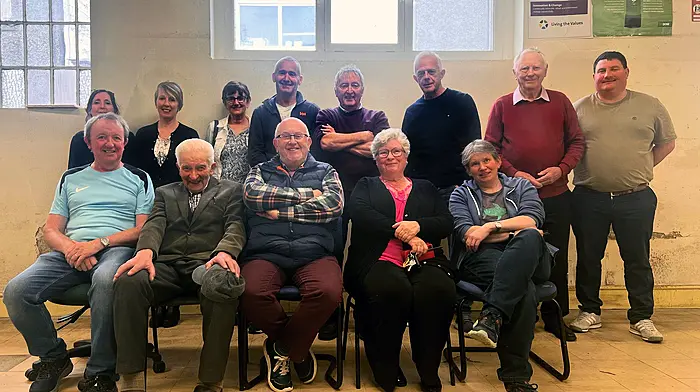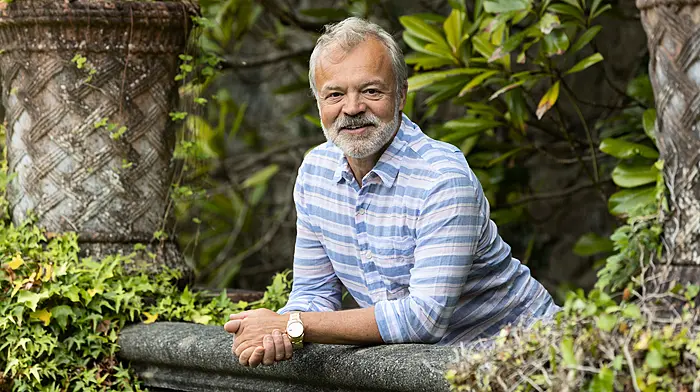
LAST week, during a lovely spell with the family in West Cork, I was privileged to take part in a local history walk in Ardfield entitled ‘The History and Folklore of the Mountain.’
The event was organised by the Tidy Towns committee as part of Heritage Week and delivered by local historians Tim Feen and Aoife Otreba. I was struck by the incredible, almost unknowable, layers of history that permeate this small 800 acres of land, described in an 1837 survey as a ‘commons, wholly in the occupation of the poor people who have enclosed it, some of it is remarkably good and the whole is under cultivation.’
Like many parts of rural Ireland, there is probably enough history in the Mountain Common area of Ardfield alone to occupy a lifetime of research.
Of course, the vista is quite different now, speckled as it is with numerous Dermot Bannon-style glass box extensions, and bustling campsites, not to mention the ubiquitous hum of the SUV, but you can still feel the history seeping through the soil, particularly when recounted by our passionate and well-informed guides.
During the walk, we heard many tales of true hardship, stories of the bodies washing up on local shores from the sunken Lusitania, to the families that were buried beneath ditches during the famine because people were too tired and sick to give them a proper burial, to the remnants of old forges that were the technological engines of their times, to the small cilliní, or historic burial sites, primarily used for stillborn and unbaptised infants.
I came away feeling more connected with the landscape where our forebearers worked so hard and in the face of such adversity, striving all the while under almost unimaginable circumstances, in order for us to live the life of relative privilege we live today, with our glass box extensions and our twelve-euro gins.
These local historical societies and the volunteers who run them are a vital part of how we tell our own story. In the past, these conversations would have been passed on orally around the fire, perhaps in the local forge. In this more displaced and disconnected age, we need to find novel ways of keeping these stories alive and capturing all the local knowledge of the last generations before they are gone.
Gladly, we have local historians like Tim and Aoife whose passion keeps those flames lit, bringing the stories and the accompanying sense of belonging and of place to a new generation. And from the big turnout and the genuine curiosity on display during the walk, there is surely an appetite for many more events of this type in the future.
What would Mick say?
The historical walk had a way of colouring and deepening my experience of being back home with the kids for our last hurrah of the summer. On the 100th anniversary of Michael Collins’s death, I found myself sitting in Red Strand drinking an iced coffee and looking out on swimmers braving the blue waters below, some of them soaked with sweat after a spell in the mobile sauna camped near the beach.
I wondered what The Big Fella would have thought of it all, if he sat down next to me on the deck chair at that moment, probably roasting in his uniform. What would he have thought about the young lady serving coffees from the horsebox talking about the pure class summer in San Diego? Or the French couple on a bike tour of West Cork stopping off for a dip and to take some straight-to-Instagram shots by the water’s edge? Or the young northside fellas from the caravan park playing a spot of hurling on the strand? How would you even begin to explain the scene to him, and the country we have now?
And what would he have thought about Fine Gael and Fianna Fáil claiming him as the original centrist, each trying to out-Collins the other at Béal na Bláth later that day, while Sinn Féin sat in the wings in the middle of a housing and cost-of-living crisis watching the opinion polls rising?
Rose by any other name
The Rose of Tralee was back on the screens this week after a Covid hiatus, a real mark that our summer is coming to a close. Despite the accusations from some quarters of being a bit of a sexist throwback, it has made a noble attempt to modernise in recent years.
Now, I’m not sure if Michael Collins would have been an avid Rose of Tralee watcher, were he alive today. Perhaps he’d be more of a Love Island man?
You see, it’s pointless attempting to dress a historical figure in contemporary clothes. And it’s equally pointless trying to retrospectively shape him into a catch-all vessel in which to pour all our contemporary political ideas.
One thing I’m sure of though – if The Big Fella had sat with me on Red Strand last Sunday morning, trying a skinny cappuccino for the first time perhaps, with the sun glistening on the water in front of The Galley, as people of all classes and creeds gathered to peacefully soak up the beautiful weather, he might have said to himself ‘now there’s a country worth fighting for’.




